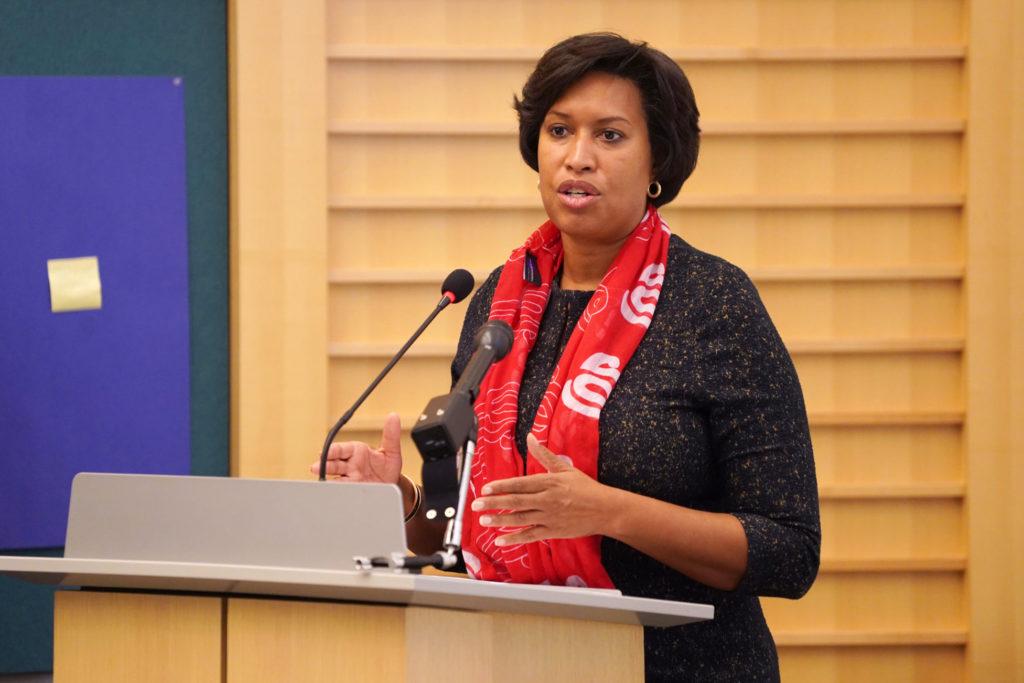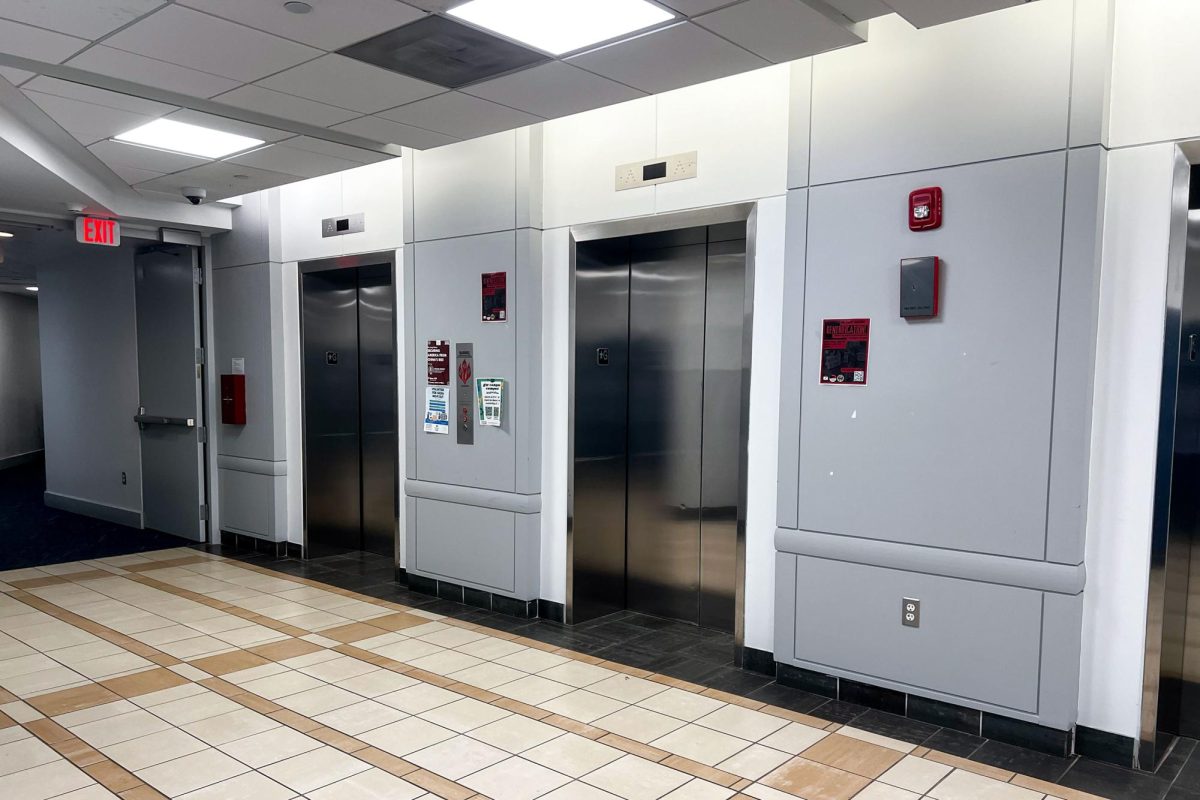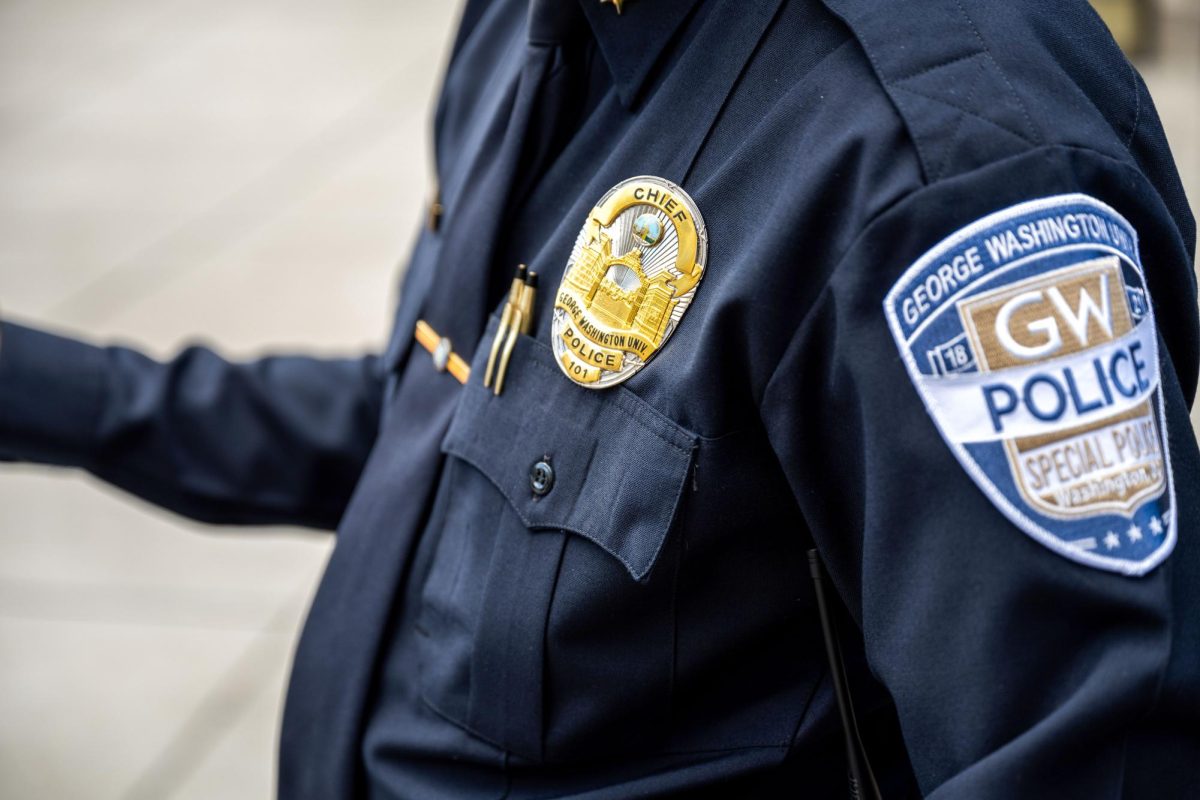Mayor Muriel Bowser signed an executive order Friday requiring people traveling from coronavirus hotspots, including students returning to campus, to self-quarantine for two weeks.
The order, which goes into effect Monday, includes people engaging in non-essential travel from locations where the seven-day moving average of daily new COVID-19 cases is 10 or more cases per 100,000 people, with exceptions for Maryland and Virginia. The order applies to students traveling to D.C. universities, according to a presentation from the Mayor’s office.
“Unfortunately when people travel in and out of D.C. to these places, that can put our community’s health at risk,” Bowser said at a press conference Friday.
The order does not affect people engaging in essential travel, but those people should only leave their residence to perform essential duties, Bowser said. She said the order does not apply to those traveling through a high-risk area in a vehicle or through an airport.
Those quarantining may only leave their residence for “essential” medical appointments or to obtain food and other essential goods when delivery to their residence is “not feasible,” the order states.
Bowser added that she has met with all D.C. university presidents to discuss reopening plans.
She said universities must also maintain a list of students quarantining in compliance with the order and make it available for inspection from D.C. officials. Universities may require students and employees to affirm compliance with the order before allowing entry or providing services, the order states.
University spokeswoman Crystal Nosal said officials are listening to feedback from the GW community and “closely monitoring” the recent uptick in COVID-19 cases in various areas across the U.S.
“We are aware of the new requirement and working with the District on the implementation process,” Nosal said in an email. “The University’s foremost consideration in planning for the fall has been and will continue to be protecting the health and safety of our GW community.”
Students are set to move in during a period of two weeks prior to the start of classes on Aug. 31. The order would require many students returning to campus to begin their classes remotely.
Nosal declined to say how the order will affect student move-in. She declined to say if affected students will be allowed to arrive on campus earlier than the current schedule so they can finish quarantining before the start of classes but added that officials will share more information in “the coming days.”
The D.C. Department of Health will update the list of affected areas every two weeks online, according to the presentation.
The order remains in effect until Oct. 9 but will be automatically extended if the District’s state of emergency is also extended.







